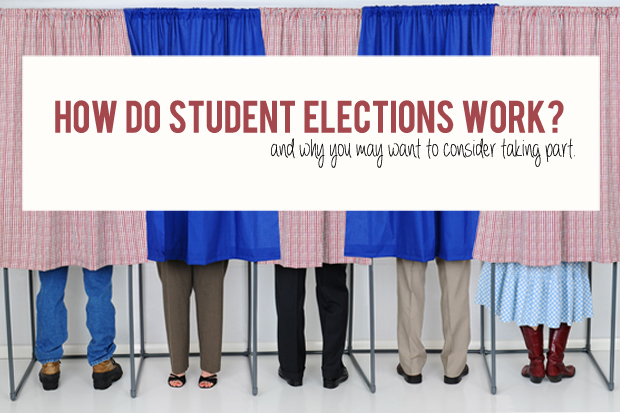Explainer: How do student elections work?
WHY should international students take part in student elections? How do they work? Meld reporter Joanna Robin explains.
Who votes?
Once a year at universities across Australia student elections are held. For some students election week is the chance to have their voices heard on campus, while for others it is a week of dodging pamphleteers or taking advantage of free sausage sizzles.
At the University of Melbourne for example, some 4000 of approximately 48,000 students voted to elect the members of their student union this year.
Of the 3,740 students who cast their votes for the International Representative, 1,039 were international students.
In general, participation rates fell by as much as 10 per cent, and Secretary of the University of Melbourne Student Union (UMSU) Stephen Smith says a lot of students are put off by student elections.
“Many students don’t know what’s going on and are scared by the whole process,” he says.
Even so, Mr Smith says this year’s election had a decent turnout of international students.
What are you voting for?
Generally representative bodies such as the UMSU aim to represent all students – local, international, undergraduate or postgraduate.
Unions may include elected representatives for female, queer, indigenous, disabled and international students.
At the University of Melbourne for example, around seven or eight groups contest the election each year.
These groups represent the main political factions i.e. Labor, Liberal, Greens, but there are also grassroots groups and groups with specific agendas.
Are there other groups on campus who represent international students?
At most universities, there is also a separate department for international students – autonomous from the union – to advocate on behalf of students and run events on campus.
In the case of the University of Melbourne, it’s the Melbourne University Overseas Student Union (MUOSS).
MUOSS president Yining Ong says it exists to refer international students to relevant services as well as create platforms for students to meet each other.
Elections for MUOSS run similarly to those of the UMSU.
Around 600 to 700 students of about 10,000 international students voted in this year’s election.
Ms Ong estimates participation rates are at around 15 per cent.
“For now there has been some representation put in place, but they can always be better and more people stepping up to voice the concerns of international students,” she says.
Why is it so hard to get international students to participate in student elections?
One of the main problems bodies such as MUOSS face is in helping students understand the importance of representation on campus. Ms Ong says many international students don’t think elections concern them directly and don’t participate actively.
Many that vote do so on the basis of brief face-to-face encounters with candidates, which may lead to “misinformed” voting, she says.
Even so, Ong admits elections could be better publicised.
Before elections MUOSS puts out notices to students to inform them of the upcoming polls and runs information sessions.
There are also sessions for candidates to introduce themselves and say what they stand for, but these are usually poorly attended.
“The general trend that I see with the majority is that they are pretty much only concerned with things that directly impact them. It would be good if they could think about bigger issues. Things such as the concession card issue. If they are more active, they can push forward such campaigns for future students as well,” Ms Ong says.
“If more people participate it would mean that they chose this particular person, this person is their choice.”
What are your experiences with student elections? What will help international students become more involved? Share your views with us in the comments section below.

